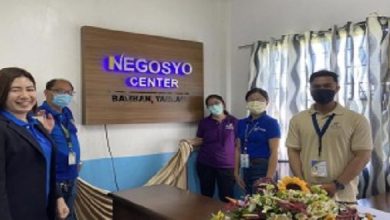
Supreme Court with the help of Microsoft took the court online through videoconferencing hearings throughout the country to keep up with safety and needs of attendees and audience amidst the COVID-19 pandemic.

On January 16, 2021, videoconferencing was formally institutionalized, and the guidelines and the conduct of video conferencing became effective. For the first time in its 119-year history, the Philippine judiciary has blazed a new trail by allowing remote testimony from parties situated in even in different parts of nation and the globe,” said Honorable Jose Midas P. Marquez, Court Administrator of the Supreme Court of the Philippines.

After immense research, SC invested on Microsoft 365 after exhibiting great cost-efficient results with a guaranteed security. The company also lend a hand through support from its IT team.

We are privileged to work alongside the Supreme Court of the Philippines in this historic achievement where remote appearances from parties across and beyond the country are now part of court proceedings. The leaders of the national judiciary aspire to provide Filipinos with innovative and accessible citizen services, and we’re fully committed to empowering them with the right technology solutions to do so—today and in the future,” said Microsoft Philippines Public Sector Director Joanna Rodriguez.
Amidst Microsoft’s recent summit, Asenso Pilipinas: Building Digital Resilience. Marquez shared how launching of videoconferencing helped ease some challenges due to the pandemic across 27, 000 court rooms under their jurisdiction nationwide.
At present, all courts are authorized to conduct videoconferencing hearings bringing the total to 2,715 courts. I am pleased to note that from May 4, 2020, to January 8, 2021, while parts of the country are still on varying forms of a lockdown and with hardly any mentoring, almost 170,000 video conferencing hearings in both civil and criminal cases have already been conducted by our judges with a success rate of 80%.
In the early days of the pandemic, under the first phase of the quarantine the detention centers were sadly affected due to rising infected Person’s Deprived of Liberty (PDL) which caused the restrained travel deeming them to work electronically.
With the substantial capability to launch virtual hearings, the Honorable Chief Justice Diosdado M. Peralta issued Administrative Circular 37-2020 for the pilot testing of hearings of criminal cases through videoconferencing in select courts in cities nationwide on April 27, 2020.
In just over a week of the pilot testing, 4,683 PDLs were released, and after two months, 21,375 videoconferencing hearings were conducted by judges. As of October 2020, more than 81,000 PDLs and children in conflict with the law were released through virtual court hearings.
“This should reduce, if not totally eliminate, the biases that could stall exponential technological developments to enhance and expedite the administration and dispensing of justice,” according to Marquez.
Through continues improvements and breakthrough, the Supreme Court hopes for more internet access throughout the country to ease the struggle of individuals and gain virtual access to justice to become a reality.







